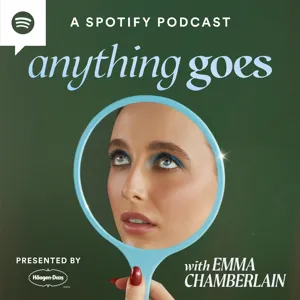Podcast Summary
The Value of Boredom: Modern technology and activities may be reducing the opportunity for children to experience boredom, which can limit their creativity and problem-solving skills.
The feeling of boredom, which many people associate with childhood summers and seemingly endless hours of doing nothing, may be a thing of the past due to the constant stimulation provided by modern technology and activities. Manush Zamorodi, a podcast host, tech journalist, and author, argues this point in a conversation he had with Guy Ross in 2018. He shares his own memories of being bored as a child and how he and his siblings would find ways to entertain themselves despite the monotony. However, Manush believes that today's children don't have the same opportunity to experience boredom due to the plethora of educational and entertaining activities available to them. This conversation, which was aired on the TED Radio Hour, offers a unique perspective on the value of boredom and how it can foster creativity and problem-solving skills. Despite the current challenges posed by the coronavirus pandemic, the TED Radio Hour team is working on a new episode that is sure to inspire and entertain.
Embrace Boredom to Unlock Creativity: Embracing boredom allows our minds to wander, connect ideas, solve problems, and plan for the future.
Constantly trying to avoid boredom might be preventing us from unlocking the full potential of our minds. When we're bored, our brains enter a state called the default mode, which is when we connect disparate ideas, solve problems, and engage in autobiographical planning. However, in today's world, we're constantly filling every moment with stimulation, whether it's checking our phones or working. According to Manu Samanotti and neuroscientists like Dr. Sandy Mann, this constant stimulation might be hindering our ability to think creatively and plan for the future. So, instead of fearing boredom, we should embrace it as an opportunity to let our minds wander and make new connections.
The Vicious Cycle of Distraction and Decreased Productivity: People check email 74 times a day and switch tasks 566 times on their computer, often driven by stress and lack of sleep. A project called 'Board and Brilliant' encourages limiting tech use to break the cycle, revealing many people's codependent relationship with their phones.
Our constant engagement with technology, particularly checking email and social media, contributes to a vicious cycle of distraction and decreased productivity. Dr. Gloria Mark, a Professor of Informatics, shared research revealing that the average person checks email 74 times a day and switches tasks on their computer 566 times a day. This behavior is often driven by stress and lack of sleep. To break this cycle, a project called "Board and Brilliant" was initiated, encouraging people to remove an app from their phone for a day and reflect on their relationship with technology. Over 20,000 people signed up, highlighting the widespread issue. Many participants discovered their phone usage had become codependent, resembling the attachment of a baby to a comfort object. By taking control of our tech use and being mindful of its impact on our day, we may be able to reclaim lost time and potentially boost creativity.
Rediscovering lost time and improving well-being through small daily changes: Small daily changes like reducing phone usage by six minutes can lead to significant improvements in various aspects of life, including well-being and rediscovering long-lost hobbies or strengthening relationships.
Small changes in daily habits, like reducing phone usage by just six minutes a day, can lead to significant improvements in various aspects of life. While the initial data may seem underwhelming, it's essential to remember that every small step counts and can lead to more substantial changes. Moreover, the stories shared by participants revealed the importance of introspection and rediscovering long-lost hobbies or strengthening relationships. The scientists and researchers involved in the project emphasized that six minutes is not insignificant and that the real value lies in the impact of these small changes on individuals' overall well-being.
The importance of deep conversations and downtime: Prioritize meaningful interactions and value the significance of slowing down for ideas to grow and evolve
We should value and prioritize downtime, eye contact, and deep conversations in our daily lives. According to Gyorz Schilling, former host of TED Radio Hour, these human functions are important for allowing ideas to take root and blossom. In our fast-paced world, we often overlook the significance of these moments and instead rely on quick, digital interactions. However, as Minush Jain, the new host of TED Radio Hour, emphasizes, we are humans who require time to think and connect with one another. Ideas don't develop in the blink of an eye through a tap on an app. Instead, they need time to grow and evolve. Therefore, it's essential to make time for meaningful interactions and to appreciate the value of slowing down and engaging in deep conversations. You can listen to Minush's full TED Talk on TED.com and tune in to the new episode of TED Radio Hour coming this Friday.






